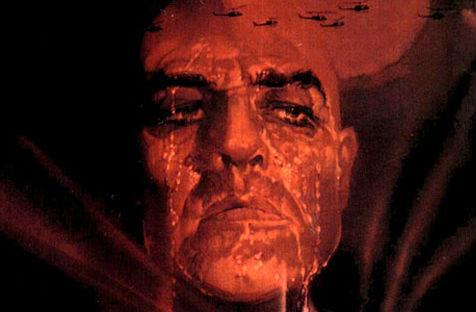The verdict on a film adaption is usually delivered with a gravitas that would oversell indisputable proof of Creationism: ‘Yes, I’ve seen [film]. The book was better’.
Well, yes, probably. That a film will fail to improve on its literary source is almost a self-evident truth, especially if the source is a long-standing C-word (Classic). Often the assertion seems offered as a sort of personal qualification, rather than as a seed for discussion. How on earth do you disagree with such an axiomatic statement? In short, you don’t, for fear of being branded an illiterate savage.
Ang Lee’s Life of Pi and Baz Luhrmann’s The Great Gatsby are likely to disappoint and enrage scores of Popular Penguin readers over the next twelve months while Walter Salles’ On the Road is already fermenting at 53% on Rotten Tomatoes.
But failure is not inevitable for a film adapted from a book, especially if the book was never a great literary work. Here are ten films that achieved the preternatural feat of surpassing their source material.
10. Wonder Boys
Protagonists Grady Tripp and James Leer are endearing, though broadly drawn,literary archetypes in Michael Chabon’s second novel. Lit-geeks swooned; most everyone else was indifferent. However, when Michael Douglas and Tobey Maguire limped and skulked around Pennsylvania in career-best performances, quaint became understated brilliance.
9. Forrest Gump
It’s probably safe to assume that most people were familiar with the film before they were Winston Groom’s novel, published in 1986. That may not be such a bad thing. While the book is fine, it doesn’t reach the emotional heights of Robert Zemeckis’ adaptation, chiefly because it lacks Tom Hanks at the apex of his powers and one of the best soundtracks of all time.
8. Requiem for a Dream
Almost a synonym for ‘very, very disturbed’, Darren Afronosky’s adaptation retained all of the desperation and despondency of Hubert Selby Jnr’s novel and then added dollops of visceral horror and panic for good measure. By the time everyone’s life has turned to shit, your skin has crawled to the shower.
7. No Country for Old Men
Cormac McCarthy is a demanding writer. ‘Muscular’ springs to mind when thinking of his prose and his flexes occasionally yield strange bulges. No Country for Old Men is more impressive than it is entertaining and far from his strongest work. The Coen Brothers, however, have the ineffable ability to make almost anything engaging.
6. The Social Network (Book: The Accidental Billionaires)
That Aaron Sorkin and David Fincher made an interesting film about social media is at the very least incredibly admirable. That they based this interesting film on a ‘non-fiction’ book that breaks capillaries undermining itself is a testament to their surplus of respective talents.
5. A Clockwork Orange
Easily the best original in this list, Stanley Kubrick amplified the already heightened reality of Anthony Burgess’ masterpiece to self-consciously kitsch extremes, and in the process, created some of film’s most iconic moments. That sounds dangerously close to hyperbole, but it’s justified. A Clockwork Orange is as stupefying today as it was in the early seventies.
4. Apocalypse Now (Book: Heart of Darkness)
More an interpretation than a straight adaptation, Apocalypse Now towers (perhaps unfairly) over any mention of Joseph Conrad’s marvellous novel. In spite of mounting disasters, Francis Ford Coppola managed to craft a film that infuses the soul of its source with fresh nightmares and insights into our innate savagery. In so doing, he created something (trite as it may sound) timeless.
3. There Will Be Blood (Book: Oil!)
The dice was loaded here. Upton Sinclair was a fine and prolific writer, but he’s not quite in the same artistic league as Paul Thomas Anderson, especially when the latter has Daniel Day Lewis at his disposal. To be fair, there are stark contrasts between the film and the novel, but when the divergent strengths of one so outweigh the other, a hat must be tipped.
2. Fight Club
Chuck Palahniuk owes a great deal to David Fincher. Fight Club is a pretty damn fine book, no doubt Palahniuk’s best. But the film is vastly superior. Visually arresting, brilliantly cast, perfectly scored and more plausibly concluded, Fincher took solid cult bones and built a pervasive and menacing beast.
1. The Godfather
You saw this coming clearer than Sonny’s ‘troubles’ and Michael’s ascent (morality notwithstanding). Like Palahniuk, author Mario Puzo is forever indebted to a visionary filmmaker. Coppola, utilising the talents of Brando and a relatively unknown Al Pacino, transformed a serviceable genre-novel into cinema’s greatest epic.
Apologies to:
The Sisterhood of the Travelling Pants.





